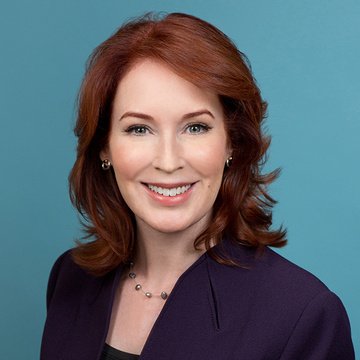Meghan L. O’Sullivan is the Jeane Kirkpatrick professor of the practice of international affairs at Harvard University’s Kennedy School and the director of the Belfer Center for Science and International Affairs. Dr. O’Sullivan’s policy-oriented scholarship is at the nexus of traditional disciplines, with particular expertise on how the energy transition and geopolitics intersect. Her research and writing has shaped how policymakers and business people consider these trends. She has also served in multiple senior policymaking roles and has advised national security officials in both Republican and Democratic administrations. Dr. O’Sullivan is a member of U.S. Secretary of State Antony Blinken’s Foreign Policy Advisory Board. Between 2004 and 2007, she was special assistant to President George W. Bush and was deputy national security advisor for Iraq and Afghanistan during the last two years of her tenure. O’Sullivan has been on public company and nonprofit boards. She is a senior director at the strategic consulting firm Macro Advisory Partners and is the chair of the North American Group of the Trilateral Commission.
- China
- RealEcon
-
Topics
FeaturedInternational efforts, such as the Paris Agreement, aim to reduce greenhouse gas emissions. But experts say countries aren’t doing enough to limit dangerous global warming.
-
Regions
FeaturedIntroduction Throughout its decades of independence, Myanmar has struggled with military rule, civil war, poor governance, and widespread poverty. A military coup in February 2021 dashed hopes for…
Backgrounder by Lindsay Maizland January 31, 2022
-
Explainers
FeaturedDuring the 2020 presidential campaign, Joe Biden promised that his administration would make a “historic effort” to reduce long-running racial inequities in health. Tobacco use—the leading cause of p…
Interactive by Olivia Angelino, Thomas J. Bollyky, Elle Ruggiero and Isabella Turilli February 1, 2023 Global Health Program
-
Research & Analysis
FeaturedAmazon Best Book of September 2024 New York Times’ Nonfiction Book to Read Fall 2024 In this “monumental and impressive” biography, Max Boot, the distinguished political columnist, illuminates…
Book by Max Boot September 10, 2024
-
Communities
Featured
Webinar with Carolyn Kissane and Irina A. Faskianos April 12, 2023
-
Events
FeaturedPlease join us for two panels to discuss the agenda and likely outcomes of the North Atlantic Treaty Organization (NATO) Summit, taking place in Washington DC from July 9 to 11. SESSION I: A Conversation With NSC Director for Europe Michael Carpenter 12:30 p.m.—1:00 p.m. (EDT) In-Person Lunch Reception 1:00 p.m.—1:30 p.m. (EDT) Hybrid Meeting SESSION II: NATO’s Future: Enlarged and More European? 1:30 p.m.—1:45 p.m. (EDT) In-Person Coffee Break 1:45 p.m.—2:45 p.m. (EDT) Hybrid Meeting
Virtual Event with Emma M. Ashford, Michael R. Carpenter, Camille Grand, Thomas Wright, Liana Fix and Charles A. Kupchan June 25, 2024 Europe Program
- Related Sites
- More
 Online Store
Online Store

